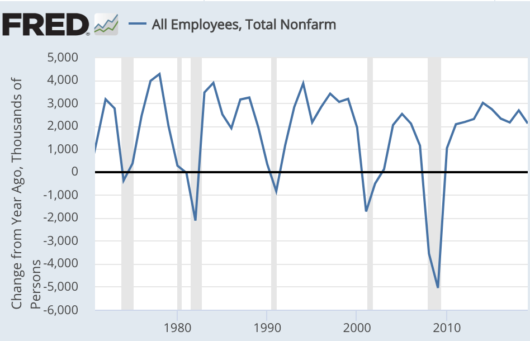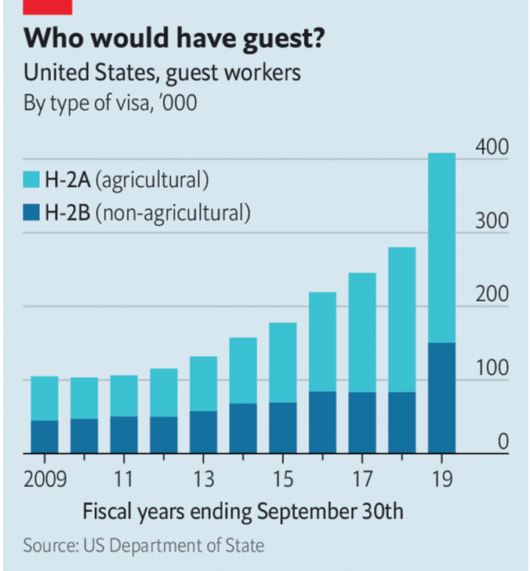Where Are All Of The Workers Coming From?
In 2019, payroll employment rose by slightly over 2.1 million. That’s actually the slowest growth since 2011.
(Click on image to enlarge)

And yet it is still pretty impressive, given the low unemployment rate and the slow growth in the prime age population. So where are all these workers coming from? Why were my predictions from a few years back too pessimistic?
I’ve already discussed several factors:
. The unemployment rate declined by more than I expected.
2. Boomers kept working longer than I expected. (Five years ago, I thought that I’d be retired by now.)
3. Illegal immigration increased by more than I expected.
4. Deportations are occurring at a lower rate than under President Obama.
And now The Economist points to another factor. Guest workers have increased by nearly 200,000 in just the past three years:
(Click on image to enlarge)

You might object that my payroll numbers are for non-farm workers, and most of the guest workers are in agriculture. But these two sectors are probably closely linked. I doubt the actual amount of farm work has increased that sharply in recent years, rather guest farmworkers are doing non-farm work or they are displacing other non-guest farmworkers. Those might be American farmworkers, but more likely they are illegal immigrants. The displaced workers may then get jobs in the non-farm sector.
In any case, this surge in immigration helps to explain why employment and GDP growth has held up better than I expected. It also tells us something about the actual priorities of the Trump administration:
Corporate tax cuts, deregulation, more guest workers, more illegal immigration and fewer deportations, bigger trade deficits, no infrastructure plan, obsessing about IP theft in China.
Does this look like an administration committed to helping downtrodden blue-collar workers, or an administration committed to helping billionaires?
I like the corporate tax cuts and the guest workers and the lack of an infrastructure plan. But then I’m an evil cosmopolitan neoliberal. And even I would favor a more pro-manufacturing set of policies than Trump, notably a reduction in the fiscal deficit, which would tend to reduce our trade deficit. Removing the steel and aluminum tariffs would also help our manufacturers.



